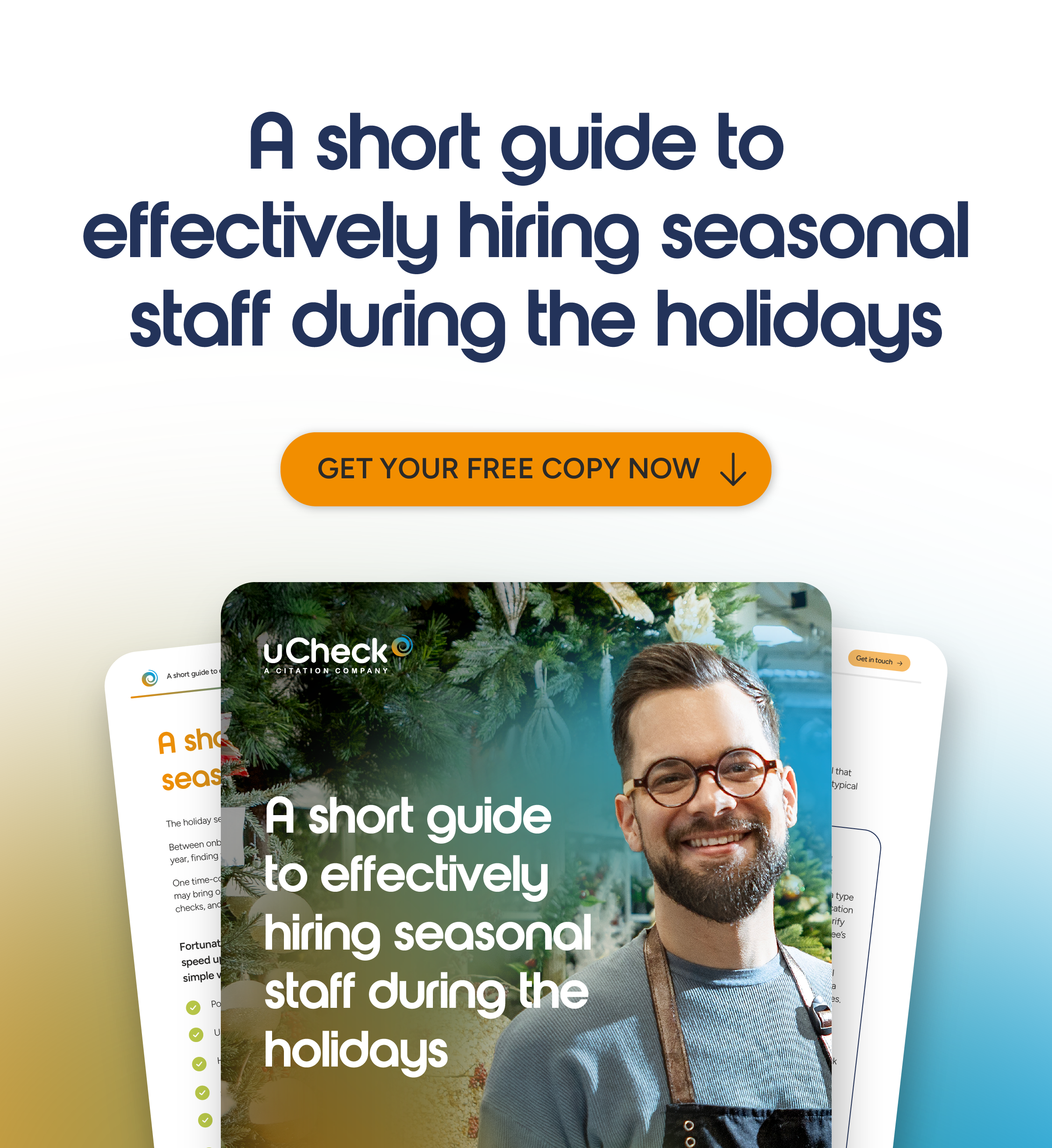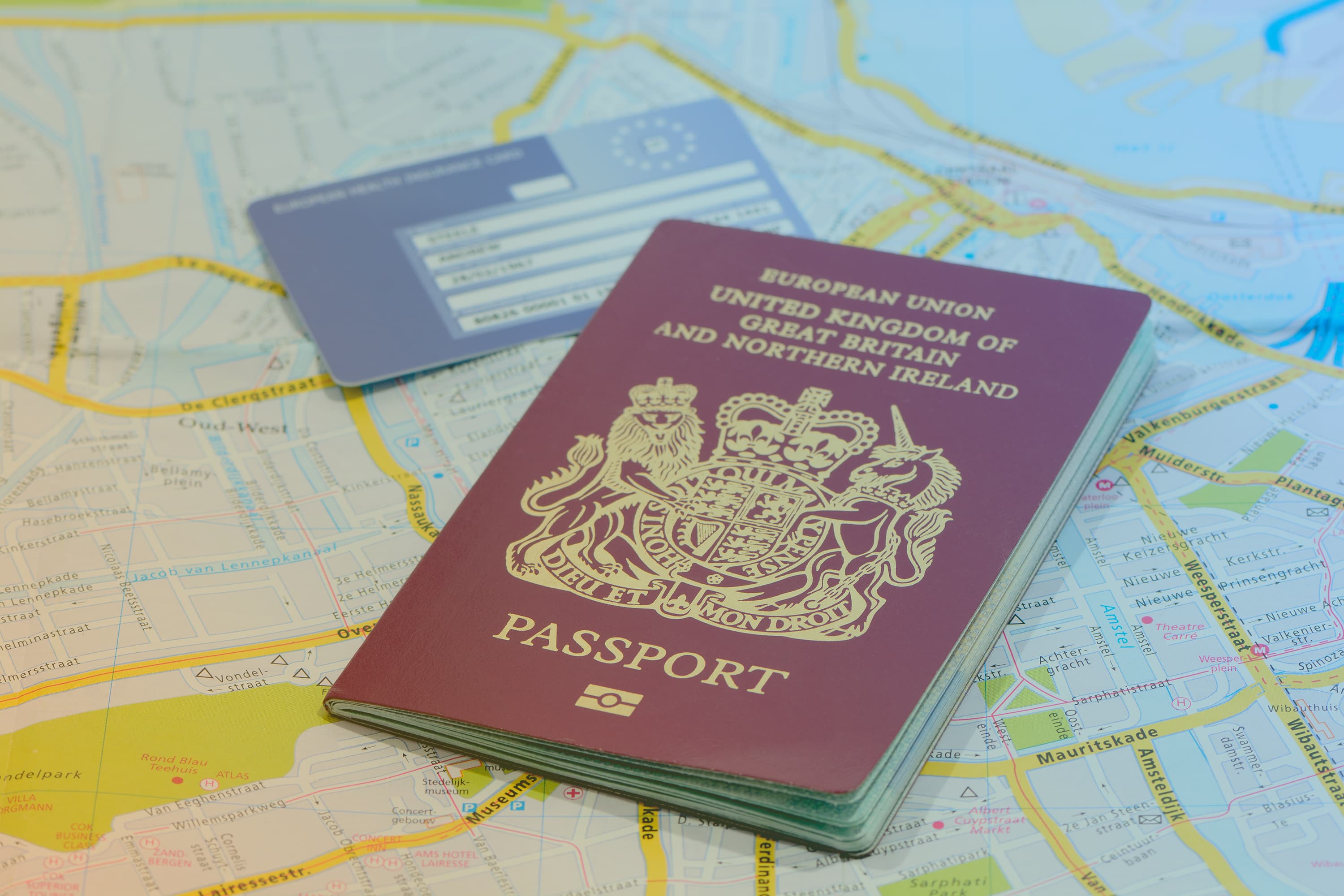When it comes to pre-employment checks, employers and individuals often have plenty of questions and sometimes, concerns.
Have you ever wondered what these checks actually involve? Or come across exaggerated myths about what employers can uncover? It’s easy to feel stressed or anxious, worrying that a past mistake or minor detail could cost you a job opportunity.
In this blog, we’ll break down some of the most common misconceptions about employment checks, clarify what they can and can’t reveal, and highlight certain claims that are either myths or even outright illegal.
Why do we need employment checks
Employment checks play a crucial role in making sure that businesses maintain a safe, compliant, and reliable workforce. They help employers make informed hiring decisions while also protecting both the business and its employees.
Some of the key reasons for conducting employment checks include:
- Verifying qualifications and experience – Let’s face it, most of us have heard of someone exaggerating their qualifications or experience on a CV. In some industries, this can have serious consequences. For example, roles that require specific certifications, such as a Level 3 Food Safety qualification for food handlers, must verify that candidates meet the necessary standards. Without proper checks, businesses could end up with unqualified employees in critical roles.
- Ensuring legal compliance – Employers must confirm that every employee has the legal right to work in the UK. This isn’t just a formality; it helps prevent illegal working and ensures businesses comply with employment laws, such as paying tax and National Insurance correctly. Failing to carry out these checks can lead to serious legal and financial consequences for employers.
- Protecting businesses from fraud and reputational damage – Employment checks help safeguard businesses from potential fraud, identity theft, and dishonest practices. A bad hire can cause operational issues and damage a company’s reputation if they engage in unethical or illegal behaviour while representing the business.
These checks are standard practice across all industries. They don’t just protect businesses, they also help to create a fair and trustworthy working environment for employees.
5 common misconceptions about employment checks
Employment checks are a crucial part of the hiring process, helping businesses verify information, maintain compliance, and make informed decisions. But there are lots of misconceptions about what these checks can and can’t do, leading to unnecessary concerns for both employers and job seekers.
Some people believe that employers have unrestricted access to personal information, while others assume that background checks are only for large corporations or certain industries. In reality, employment checks are highly regulated, and employers must follow strict legal and ethical guidelines when conducting them.
To clear up the confusion, let’s take a look at five of the most common misconceptions about employment checks and separate fact from fiction.
1. Employers can’t check a candidate’s social media presence
Do you believe that employers have no right to check a candidate’s social media? Well. that’s not entirely true. If a candidate’s social media profiles are set to public, employers are legally allowed to review them as part of a background check. Since this information is publicly accessible, it can be considered during the hiring process.
Employers do need to be cautious. Using social media in hiring decisions could lead to bias or discrimination, whether intentional or not. Under UK employment law, hiring decisions can’t be influenced by protected characteristics such as age, race, religion, disability, or sexual orientation. If an employer views a candidate’s social media, they must make sure it doesn’t result in unfair treatment.
If you’re an employer considering social media screening, you should:
- Apply screening fairly – Treat all candidates the same. If one person has private accounts, it would be unfair to hold others to a different standard.
- Only assess job-relevant information – A candidate’s personal life shouldn’t factor into hiring decisions. Focus only on content that may be relevant to the role.
- Comply with data protection laws – The UK has strict regulations on how personal data can be processed. You must ensure you follow the UK GDPR when reviewing social media content.
Most importantly, if you choose not to hire someone based on information found on social media, you must have a clear and justifiable reason that’s directly relevant to their suitability for the role.
2. You can perform a background check without the candidate’s permission
In the UK, there are strict protection laws when it comes to personal data. The General Data Protection Regulation (GDPR) explicitly emphasises the importance of getting consent from the individual before processing any personal data checks. This includes any information gathered in background checks.
If you’re looking to check any criminal records, detailed employment history, etc. you must get permission from the individual beforehand.
What kind of consent do you need?
Consent for a background check must be:
- Freely given – The candidate must not feel pressured into agreeing.
- Specific – The consent should clearly outline what information will be checked.
- Informed – The candidate must fully understand why the check is being conducted.
- Unambiguous – There should be a clear, affirmative action (e.g., signing a consent form).
Failing to get proper consent could lead to legal consequences for the employer.
3. Only large businesses have to do background checks
This isn’t true at all. A business of any size can conduct background checks on candidates in the UK, but all businesses, regardless of their size, must adhere to the same legal and ethical guidelines when carrying out these checks.
While larger businesses may have dedicated HR teams or external agencies to handle background screening, smaller businesses can still conduct necessary checks using available resources. In fact, smaller businesses may benefit even more from thorough background checks. That’s because a single bad hire can have a bigger impact on their operations, finances, and reputation compared to a large organisation with more staff.
Additionally, in regulated industries such as healthcare, finance, or childcare, all businesses, big or small, must comply with industry-specific requirements for background checks. This ensures that employees meet the necessary standards for legal and ethical employment.
No matter the size of the business, employment checks should be conducted fairly, consistently, and in compliance with the law.
4. Employment checks should be the same for every role
Not all roles require the same level of background screening. The type and extent of employment checks should align with the specific responsibilities and risks of the job.
For example:
- Roles that involve handling sensitive data or financial responsibilities may require financial background checks.
- Jobs in childcare, education, or healthcare will often require enhanced DBS (Disclosure and Barring Service) checks.
- A basic administrative role may only need a standard right-to-work check.
Employers should assess which checks are necessary for each role rather than applying a one-size-fits-all approach.
5. Criminal record checks are legally required in all sectors
This is completely false. Criminal record checks, or DBS checks, aren’t legally required for every job in the UK. In most industries, it’s up to the employer to decide whether they wish to hire someone with a criminal record.
However, certain roles must have criminal record checks by law, including:
- Jobs that involve working with children or vulnerable adults (e.g., teachers, carers, medical professionals).
- Certain healthcare, social care, and education roles.
- Roles that require high public trust, such as some positions in law, finance, and security.
Employers can request different levels of DBS checks, including:
- Basic DBS check – Shows unspent convictions only.
- Standard DBS check – Includes both spent and unspent convictions, cautions, and reprimands.
- Enhanced DBS check – Includes everything in a standard check plus any relevant police information.
For most private-sector jobs, a criminal record does not automatically disqualify a candidate, and employers must consider the nature of the offence and its relevance to the role.
Making employment checks simple
Could your business benefit from more time on the clock, more bang for its buck, and unlimited support? Of course it could! And as your employment check wingman, we’d make it our mission to make employment checks speedy, cost-effective, and simple for you.
Ready to get started? We’re ready when you are! Signing up today will take you less than 10 minutes, and once your account is set up, you can begin your checks right away, paying for what you need as you go.
Join the 30,000 happy employers who are using uCheck to streamline their recruitment process today!







